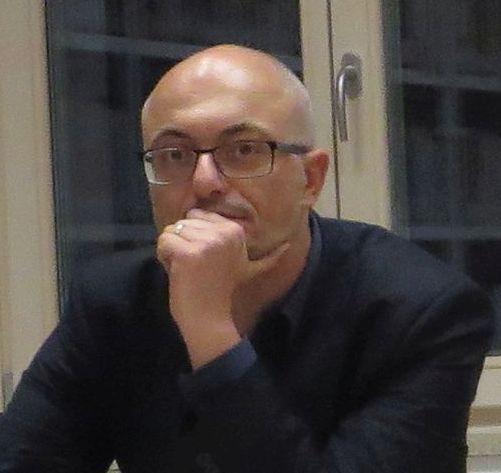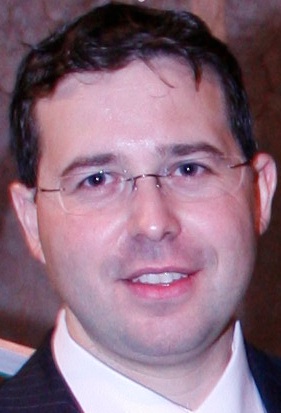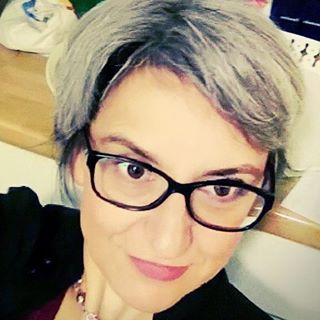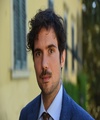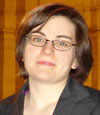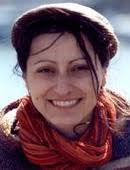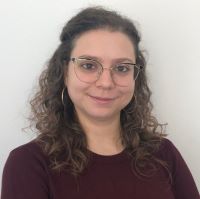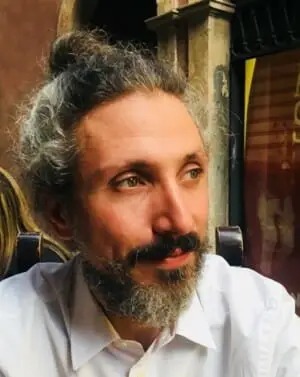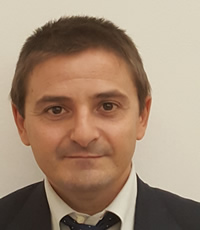Studying at the University of Verona
Here you can find information on the organisational aspects of the Programme, lecture timetables, learning activities and useful contact details for your time at the University, from enrolment to graduation.
Academic calendar
The academic calendar shows the deadlines and scheduled events that are relevant to students, teaching and technical-administrative staff of the University. Public holidays and University closures are also indicated. The academic year normally begins on 1 October each year and ends on 30 September of the following year.
Course calendar
The Academic Calendar sets out the degree programme lecture and exam timetables, as well as the relevant university closure dates..
| Period | From | To |
|---|---|---|
| 1 A | Sep 27, 2021 | Nov 6, 2021 |
| 1 B | Nov 15, 2021 | Jan 12, 2022 |
| 2 A | Feb 14, 2022 | Mar 26, 2022 |
| 2 B | Apr 4, 2022 | Jun 4, 2022 |
| Session | From | To |
|---|---|---|
| Sessione d'esame invernale | Jan 10, 2022 | Feb 12, 2022 |
| Sessione d'esame estiva | Jun 6, 2022 | Jul 23, 2022 |
| Sessione d'esame autunnale | Aug 29, 2022 | Sep 24, 2022 |
| Session | From | To |
|---|---|---|
| Sessione straordinaria (a.a. 2020/21) | Mar 28, 2022 | Apr 2, 2022 |
| Sessione estiva | Jul 11, 2022 | Jul 16, 2022 |
| Sessione autunnale | Nov 7, 2022 | Nov 12, 2022 |
| Sessione straordinaria | Mar 31, 2023 | Apr 6, 2023 |
| Period | From | To |
|---|---|---|
| Festività natalizie | Dec 24, 2021 | Jan 2, 2022 |
| Festività pasquali | Apr 15, 2022 | Apr 19, 2022 |
| Festività Santo Patrono di Verona | May 21, 2022 | May 21, 2022 |
| Chiusura estiva | Aug 15, 2022 | Aug 20, 2022 |
Exam calendar
Exam dates and rounds are managed by the relevant Culture and Civilisation Teaching and Student Services Unit.
To view all the exam sessions available, please use the Exam dashboard on ESSE3.
If you forgot your login details or have problems logging in, please contact the relevant IT HelpDesk, or check the login details recovery web page.
Academic staff
 giovanni.bernardini@univr.it
giovanni.bernardini@univr.it
 marco.carradore@univr.it
marco.carradore@univr.it
 francesca.cecconi@univr.it
francesca.cecconi@univr.it
 monica.cristini@univr.it
monica.cristini@univr.it
 paolodalben@tin.it
paolodalben@tin.it
Hatzikiriakos Alexandros Maria
 alexandrosmaria.hatzikiriakos@univr.it
alexandrosmaria.hatzikiriakos@univr.it
 gianluca.lanfranchi@univr.it
gianluca.lanfranchi@univr.it
 giulia.pedrucci@univr.it
giulia.pedrucci@univr.it
 valentina.romanzi@univr.it
valentina.romanzi@univr.it
 alberto.scandola@univr.it
alberto.scandola@univr.it
 sorayaelizabeth.shamloo@univr.it
sorayaelizabeth.shamloo@univr.it
 nicola.turrini@univr.it
nicola.turrini@univr.it
Study Plan
The Study Plan includes all modules, teaching and learning activities that each student will need to undertake during their time at the University.
Please select your Study Plan based on your enrollment year.
1° Year
| Modules | Credits | TAF | SSD |
|---|
2° Year activated in the A.Y. 2022/2023
| Modules | Credits | TAF | SSD |
|---|
Un insegnamento a sceltaForeign language B1 level (CB Test)3° Year activated in the A.Y. 2023/2024
| Modules | Credits | TAF | SSD |
|---|
2 MODULES AMONG THE FOLLOWING| Modules | Credits | TAF | SSD |
|---|
| Modules | Credits | TAF | SSD |
|---|
Un insegnamento a sceltaForeign language B1 level (CB Test)| Modules | Credits | TAF | SSD |
|---|
2 MODULES AMONG THE FOLLOWING| Modules | Credits | TAF | SSD |
|---|
Legend | Type of training activity (TTA)
TAF (Type of Educational Activity) All courses and activities are classified into different types of educational activities, indicated by a letter.
Work and Communication Psychology (i) (2022/2023)
Teaching code
4S01887
Teacher
Coordinator
Credits
6
Language
Italian
Scientific Disciplinary Sector (SSD)
M-PSI/06 - WORK AND ORGANIZATIONAL PSYCHOLOGY
Period
2 A, 2 B
Learning objectives
This course aims to introduce the framework of industrial and organizational (I/O) psychology as a field of study and of intervention. In particular, it focuses on the relationships between interpersonal interactions (individual differences and not), job characteristics and organizational variables. At the end of the course, the student should be able to recognize constructs such as Work Engagement and Burnout, apply organizational models such as Job Demands-Resources and Demand-Control, and evaluate behaviors such as Job crafting and Counterproductive Work Behavior. Regarding the application of the subject of study, the student should be able to understand and solve interactive cases based on empirical evidence in the field of occupational psychology.
Prerequisites and basic notions
No prerequisites required
Program
The program of the course will deal with the innovative ways of creating and disseminating products with a high scientific value in the field of Occupational Psychology. The course will deal with typical themes and constructs of the discipline such as: Work Engagement and Burnout; Work-Life Balance; Grit and Resilience; Self-Esteem and Self-Efficacy; Employability; Problem solving; Proactivity and Prosocial Behavior.
Bibliography
Didactic methods
The teaching methods adopted are distinguished between attending and non-attending students due to the high rate of innovation of the reference literature which requires continuous verification of the contents of the course provided. As far as attending students are concerned, teaching will be provided in the form of lectures dedicated to the transmission of the basic notions, key categories and fundamental application tools; to this are added the exercises in reading scientific articles and writing digital papers in the field of Organizational Psychology. Furthermore, with the help of the University e-learning platform, refresher readings and the use of media concerning the topics covered in the course are proposed. With regard to non-attending students, the teaching methods consist in uploading the recorded lessons and additional material on the University e-learning platform, as well as consulting the exams suggested and available on Leganto. The individual reception service managed by the teacher is available throughout the academic year, at the times indicated on the web pages and constantly updated. Any further updates will be made available to the student in good time by means of specific notices.
Learning assessment procedures
The assessment of learning outcomes involves an oral presentation based on the preparation and presentation of a written paper to be forwarded to the teacher one week before the start of the exam session - and evaluated entirely as an exam. Information on the production of the product can be found in the following guide: https://paper.dropbox.com/doc/Guida-Try-dExam--BJLuAB07ZRojeAflY_orygQEAQ-3qrT5LvNcHGjBauvO8618 (copy and paste the link in the address bar of the browser).
Evaluation criteria
The exam product will be assessed for: presentation relevant to the delivery, organization of the topics covered: logic and coherence, presentation is clear and correct, articulated lexicon and rich in technical terms.
Criteria for the composition of the final grade
The evaluation consists of the grade assigned to the exam product and any group work required of attending students.
Exam language
Italiano
Type D and Type F activities
COMPETENZE TRASVERSALI
| years | Modules | TAF | Teacher | |
|---|---|---|---|---|
| 3° | Methods of Research & Thesis Writing | F |
Alessandra Zangrandi
(Coordinator)
|
|
| 1° 2° 3° | Call for the poetic choir of the canto XXVI of the Purgatory | F |
Nicola Pasqualicchio
(Coordinator)
|
|
| 1° 2° 3° | Series of conferences Don Mazza University College | F |
Alessandra Zangrandi
(Coordinator)
|
|
| 1° 2° 3° | Dante on stage. Meetings with directors, actors, choreographers | F |
Nicola Pasqualicchio
(Coordinator)
|
|
| 1° 2° 3° | Girolamo Fracastoro. 500 years from the beginning of modern pathology | F |
Carlo Chiurco
(Coordinator)
|
|
| 1° 2° 3° | Laboratory of Theatrical Criticism | F |
Simona Brunetti
(Coordinator)
|
|
| 1° 2° 3° | Playlab - soft skills workshops | F |
Simona Brunetti
(Coordinator)
|
|
| 1° 2° 3° | Theatre with wheels | F |
Simona Brunetti
(Coordinator)
|
|
| years | Modules | TAF | Teacher |
|---|---|---|---|
| 1° 2° 3° | Future's Festival | F |
Alessandra Zangrandi
(Coordinator)
|
| years | Modules | TAF | Teacher |
|---|---|---|---|
| 1° 2° 3° | Series of conferences Don Mazza University College | F |
Alessandra Zangrandi
(Coordinator)
|
| 1° 2° 3° | Dante on stage. Meetings with directors, actors, choreographers | F |
Nicola Pasqualicchio
(Coordinator)
|
| 1° 2° 3° | From fascism to populism and back | F |
Renato Camurri
(Coordinator)
|
| 1° 2° 3° | Memorial Day | F |
Renato Camurri
(Coordinator)
|
| 1° 2° 3° | International Workshop Mothers in the Time of the Church Fathers: Maternal Thought and Maternal Practice between Normative Representations and Individual Transgressions | F |
Giulia Pedrucci
(Coordinator)
|
| 1° 2° 3° | Laboratory of Theatrical Criticism | F |
Simona Brunetti
(Coordinator)
|
| 1° 2° 3° | Playlab - soft skills workshops | F |
Simona Brunetti
(Coordinator)
|
| 1° 2° 3° | Theatre with wheels | F |
Simona Brunetti
(Coordinator)
|
| 1° 2° 3° | Workshop The ethics and aesthetics of the image | F |
Simona Brunetti
(Coordinator)
|
| years | Modules | TAF | Teacher |
|---|---|---|---|
| 1° 2° 3° | "Common world. 2022 Arendt Seminars | F |
Ilaria Possenti
(Coordinator)
|
| 1° 2° 3° | Restorative Justice | F |
Cristina Lonardi
(Coordinator)
|
| 1° 2° 3° | Gnoseology and Metaphysics Workshop | F |
Davide Poggi
(Coordinator)
|
| years | Modules | TAF | Teacher |
|---|---|---|---|
| 1° 2° 3° | "Common world. 2022 Arendt Seminars | F |
Ilaria Possenti
(Coordinator)
|
| 1° 2° 3° | Gnoseology and Metaphysics Workshop | F |
Davide Poggi
(Coordinator)
|
Career prospects
Module/Programme news
News for students
There you will find information, resources and services useful during your time at the University (Student’s exam record, your study plan on ESSE3, Distance Learning courses, university email account, office forms, administrative procedures, etc.). You can log into MyUnivr with your GIA login details: only in this way will you be able to receive notification of all the notices from your teachers and your secretariat via email and also via the Univr app.
Graduation
Documents
| Title | Info File |
|---|---|
|
|
pdf, it, 263 KB, 09/02/22 |
List of thesis proposals
| theses proposals | Research area |
|---|---|
| Laureandi Scienze della Comunicazione: vademecum | Various topics |
Gestione carriere
Linguistic training CLA
Student mentoring
Student login and resources
Modalità e sedi di frequenza
La frequenza non è obbligatoria.
Maggiori dettagli in merito all'obbligo di frequenza vengono riportati nel Regolamento del corso di studio disponibile alla voce Regolamenti nel menu Il Corso. Anche se il regolamento non prevede un obbligo specifico, verifica le indicazioni previste dal singolo docente per ciascun insegnamento o per eventuali laboratori e/o tirocinio.
È consentita l'iscrizione a tempo parziale. Per saperne di più consulta la pagina Possibilità di iscrizione Part time.
Le sedi di svolgimento delle lezioni e degli esami sono le seguenti:
- Polo Zanotto (vicino si trova il Palazzo di Lettere)
- Palazzo ex Economia
- Polo Santa Marta
- Istituto ex Orsoline
- Palazzo Zorzi (Lungadige Porta Vittoria, 17 - 37129 Verona)

 +39 045 802 8459
+39 045 802 8459
